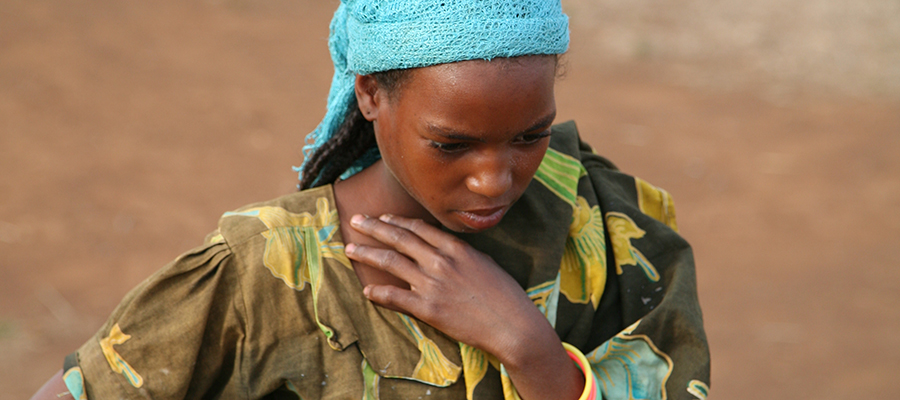Physical and Pyschological Consequences

Acute physical consequences
During the assault, the victims frequently suffer a state of shock due to terror, extreme pain, and uncontrolled bleeding. Unhygienic circumstances cause urinary tract infections (UTIs) and infections in the uterus and ovaries. Infections such as Tetanus, Gangrene, and general blood poisoning can lead to death. Urinary retention due to fear of pain as well as inflammation and swelling often occur after the mutilation. Additional use of force (such as forcible restraint, beating, and gagging) during the procedure often leads to injury of adjacent organs (like urinary tract, vagina, perineum, or rectum) and fractures such as broken collarbones, arms, or femurs.
Chronic physical consequences
Consequences for pregnancy and birth
Due to inflexible scar tissue and constriction of the vaginal opening, the labor is often dangerously extended. Many children die of anoxia (lack of oxygen) or suffer brain damage. The mothers have — besides unnecessarily great pain — a high risk of wound- and urinary tract infections, sepsis, and risky bleeding during defibulation and re-infibulation. Birth injuries such as severe tearing of the perineum or urethra and incontinence are common.
Incontinence occurs if the baby's head presses with force against the pelvis for an extended period of time. The tissue dies and leaves behind a hole between the vagina and bladder, and sometimes the rectum as well. As a result, excretions can no longer be held back, leading to severe incontinence. If a women can no longer control her excretions, it is an enormous burden that, like infertility or stillbirths, often leads to her exclusion from society.
